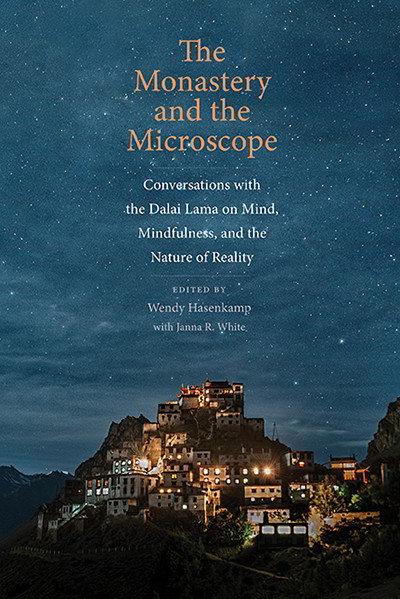Edited by Wendy Hasenkamp with Janna White
(Yale University Press)
ISBN: 9780300218084
In 2013, during a landmark Mind & Life dialogue at a Tibetan monastery in southern India, with an audience of thousands of monks and nuns, the Dalai Lama gathered with leading scientists, philosophers and monastics for in-depth discussions on the nature of reality, consciousness and the human mind. This eye-opening book presents a record of those spirited and wide-ranging conversations as prominent scholars including Richard Davidson, Thupten Jinpa, Matthieu Ricard, Tania Singer and Arthur Zajonc address questions such as: Does nature have a nature? Do you need a brain to be conscious? Can we change our minds and brains through meditation? What can science do for a monk, and what can a monk do for science?
In sections on physics, consciousness studies, neuroscience and the practical applications of contemplative practice, the contributors explore the exciting and sometimes surprising commonalities between Western scientific methods and Tibetan Buddhist methods of perceiving, investigating and knowing. Part history, part state-of-the-field, part inspiration for the future, this book explores what these two traditions can teach each other, and what they can tell us about ourselves and the world.
“The Monastery and the Microscope offers a powerful constellation of human potentials brought to their fullest. Shedding light on so many of life’s great questions, it is a tremendous accomplishment and clearly a labor of love.”
— Sharon Salzberg, author of “Real Happiness and
Real Love”
“In this gripping volume, Hasenkamp and White take you to India and give you a front-row seat at a special moment in the ongoing dialogue between Western science and Tibetan Buddhism. Not to be missed.”
— Evan Thompson, author of “Waking, Dreaming, Being”
“This remarkable book reflects the wisdom of the deepest insights in physics, neuroscience, and philosophy in relation to the human mind and perspectives on reality. A great
contribution to human understanding.”
— Joan Halifax, Abbot, Upaya Zen Center


